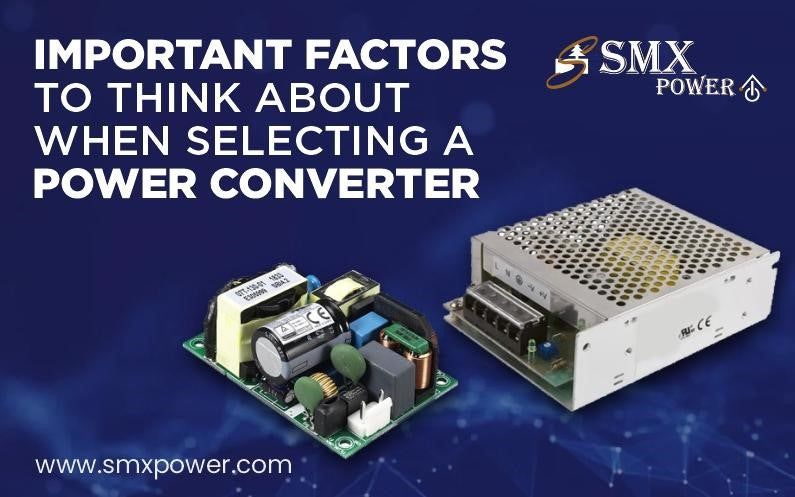Power converters are critical in the current world where electronics direct our lives. AC/DC power converters are used for stable charging of smartphones, industrial equipment, and medical equipment. However, this variety brings about difficulty in choosing a power converter.
Here follows the key AC/DC power converter selection factors to help you choose the right AC/DC power converters.
What is an AC to DC converter?
AC to DC converters, also known as rectifiers, are the devices that convert AC to DC. AC to DC converters convert the AC input voltage into a DC voltage that circulates the circuits of other electrical equipment and power systems. They are key components of many devices such as power cables, computers, TVs, and phones.
How to choose an AC to DC converter
Important things to consider while purchasing an AC/DC converter include:
- Specific application or use case for the converter
- Application voltage requirements
- Application current (amperage) needs
Depending on your scenario, other factors may apply. These are some of the more prevalent and noteworthy ones. Let's briefly discuss each one so you can make the greatest choice for your needs.
-
Use case for converter
The application or use case of the converter comes first. Also, most of the applications employ AC/DC converters. Each needs a different strength. Make sure you know the purpose for which you will be using the converter before buying it. Hence, you can find the most suitable model among the available options. This will also help you pick out the right ratings for your model.
-
Voltage requirements
Identify your application’s voltage requirements. Voltage is the pressure behind electric current. The 'power' which drives the wire current is determined by how much. The greater part of small electronics, for example, laptops and mobile phones uses three to twelve volts. If you require a converter with higher voltage for industrial use like medical or crypto mining, you need it.
On the contrary, industrial applications like x-ray devices may require more voltage. Take into account safety of medical hardware while purchasing a converter. Go back to the use case. Hence, get yourself a medical grade power supply.
-
Amperage requirements
Both current and voltage should be taken into account at the same time. The current which flows through the wires is measured in ampere. An electronic device’s “Power” consumption.
Similar to voltage, the needed amperage differs from one application to another. Small electronic devices require less amperage than heavy industry equipment, same as voltage. To figure out the proper adapter amperage, research the equipment you are powering.
Other Considerations When Choosing an AC DC Converter
Other factors to consider while purchasing an AC/DC converter include:
- Unit size
- Efficiency rating
- Warranty
Size is essential when you have limited space. Pick the converter that works in your space otherwise you will have to return or exchange it.
Get power supply products that have a warranty. This provides backup of your investment in the case of unit failure.
Conclusion
Choosing the appropriate AC/DC power converter requires you to evaluate input/output voltage compatibility, power rating, efficiency, size, safety, and reliability. You will get the most out of your electrical devices and systems in terms of reliability and efficiency by thoroughly evaluating these factors and choosing a power supply converter that best suits your needs.
In order to make the right decision and ensure the quality of power conversion system performance and reliability, you must seek the consultation of experts, research the product specification, and conduct exhaustive tests.
